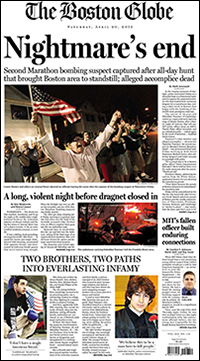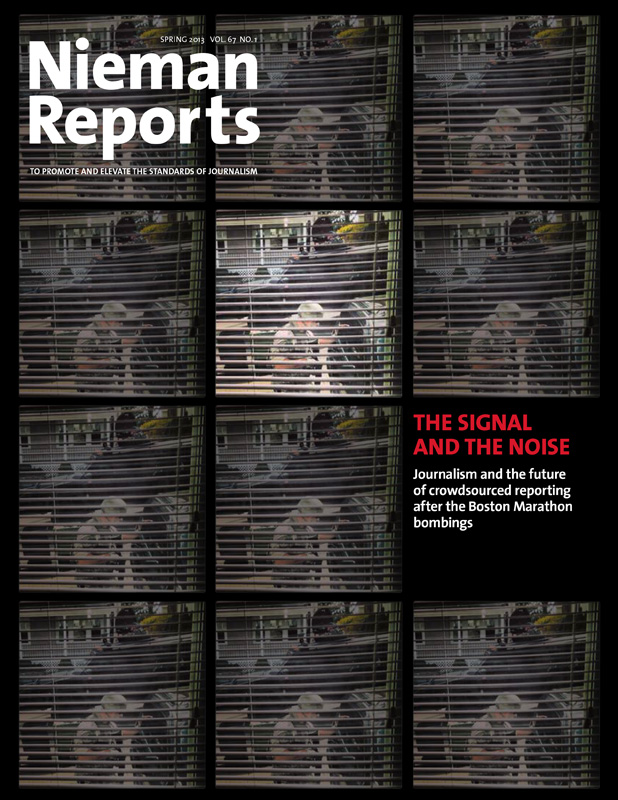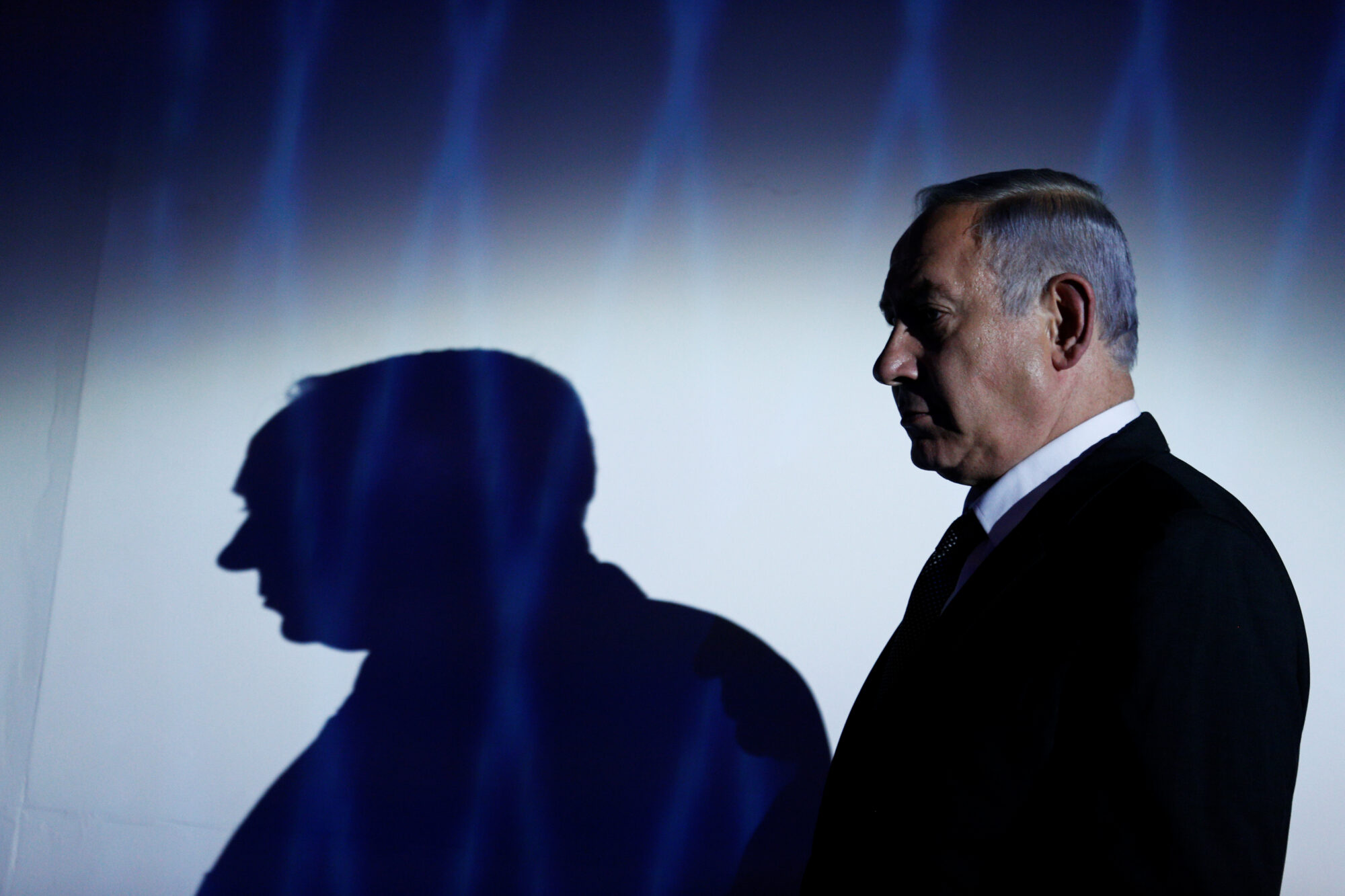
Click to enlarge.
Image courtesy of the Newseum
As the Boston Marathon bombing story continued to develop over the weekend, Nieman Fellows reported on the events, offering perspective from around the world and down the street:
Jerusalem Post military affairs reporter Yaakov Katz, NF ’13, reflected on the lockdown of the Boston area for his paper: “I am not judging the people of Boston and their leaders and yes, there is something to be said about being safe rather than sorry. But, I wonder about the long-term strategic ramifications and if this won’t be viewed as a near-surrender to terrorism.”
Freelance journalist Dina Kraft, NF ’12, who used to live in Tel Aviv, Israel and now lives in Cambridge, Mass., writing in Haaretz reflected on terrorism “ as someone who has seen and reported on the nasty tendency of terror to linger, not vanish like a perfect Hollywood ending.”
Boston Globe staffer David Abel, NF ’13, who was at the Marathon finish line at the time of the explosions, reported on a slain MIT campus police officer and a critically injured transit officer and contributed to coverage in Sunday’s paper.
Washington Post editor Mary Beth Sheridan, NF ’13, interviewed residents and workers in Watertown, one of whom called it “Just a Regular Joe town.”
Jeb Sharp, NF ’06, a producer for PRI’s “The World,” wrote on the show’s blog about her interview with terrorism expert Jessica Stern who remarked that “events that are visible in a big way alarm us out of proportion to the actual danger.”
Freelance journalist Paige Williams, NF ’97, writing on The New Yorker’s blog, looked at “the speed with which ordinary citizens on the Internet’s bleeding edge discovered the old, analog law-enforcement tool”: the police scanner.
Northeastern University journalism professor Jeff Howe, NF ’10, also writing for The New Yorker's blog, described watching the final moments of the hunt for the suspect from a cemetery in Watertown.
WBUR reporter Martha Bebinger, NF ’10, focused on a married couple who are among the most seriously injured marathon bombing patients. Patrick Downes and Jessica Kensky Downes were “cheering runners near the finish line Monday when the explosions threw them apart, “ she wrote on WBUR’s CommonHealth blog.
Latitude, a website founded by Maria Balinska, NF ’10, carried the angry comments of Chechnya’s president, Ramzan Kadyrov, who denied that the suspected Boston Marathon bombers, of Chechen descent, had any connection to an Islamist insurgency in Russia’s restive North Caucasus region. “It has become a tradition to blame everything on Chechens, even a tsunami,” he said.
NPR reporter Chris Arnold, NF ’13, reported from downtown Boston, amidst the closed stores and restaurants, during the lockdown on Friday.



